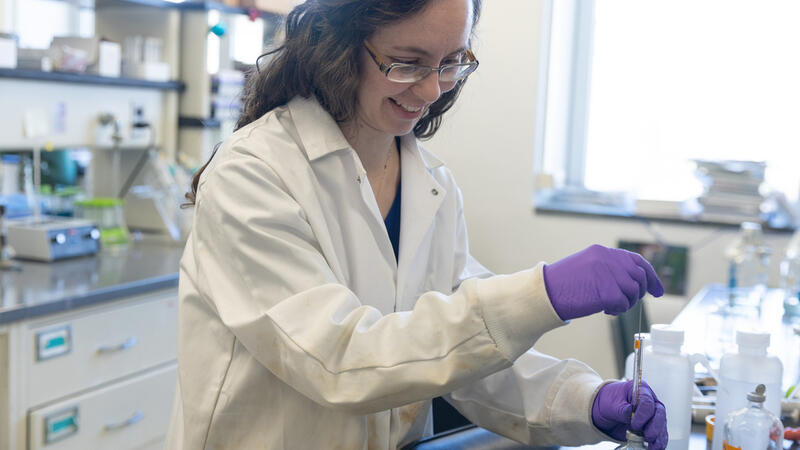News
New model helps ID source of potent greenhouse gas
Elise Rivett was researching nitrous oxide (N20) when she discovered a problem with the model long used to trace the source of this potent greenhouse gas.
The American Academy of Arts and Sciences announced today (April 18) that three faculty from the University of Wisconsin–Madison were elected to the 2018 class of members.
Michigan State University is a national leader among universities in the number of endowed faculty positions held by women. Of the 131 endowed positions currently occupied across campus, 24.4 percent are held by women. Nine of those are in the College of Natural Science—four donor-funded positions and five MSU Foundation Professors.
Michaela TerAvest, assistant professor of biochemistry and molecular biology, received $519,357 from NSF’s Division of Engineering to support her project to develop a microbial electrosynthesis platform — a technology that combines renewable electricity storage with carbon capture using bacteria that eat electricity.
Biochemistry professor Richard Amasino has been awarded a Wisconsin Alumni Research Foundation (WARF) Named Professorship.
Behind the successful conversion of biomass to a better biofuel or a new green chemical, there is a carefully chosen solvent. The right solvent not only dissolves biomass but also drives the efficiency of the entire conversion process, resulting in higher yields and a lower bottom line.
AUSTIN, Texas — Building on the success of 10 years of investigation into the production of renewable fuels from plants, the Great Lakes Bioenergy Research Center (GLBRC), led by the University of Wisconsin–Madison, recently embarked on a new mission: to develop sustainable alternatives to transportation fuels and products currently derived from petroleum.
Advances in biofuels research tend to involve reduced costs, greater reagent stability, more diverse and valuable end products, or faster reactions, which often increase product yields as well.
In an article published last summer in Science, researchers at the Great Lakes Bioenergy Research Center (GLBRC) reported on ten years of work assessing the potential climate benefit of producing dedicated bioenergy crops such as switchgrass, poplar, or restored prairie. The mood?
Assistant professor of biochemistry Vatsan Raman was recently named to a list of 44 young researchers featured in Biochemistry’s “Future of Biochemistry” special issue.




